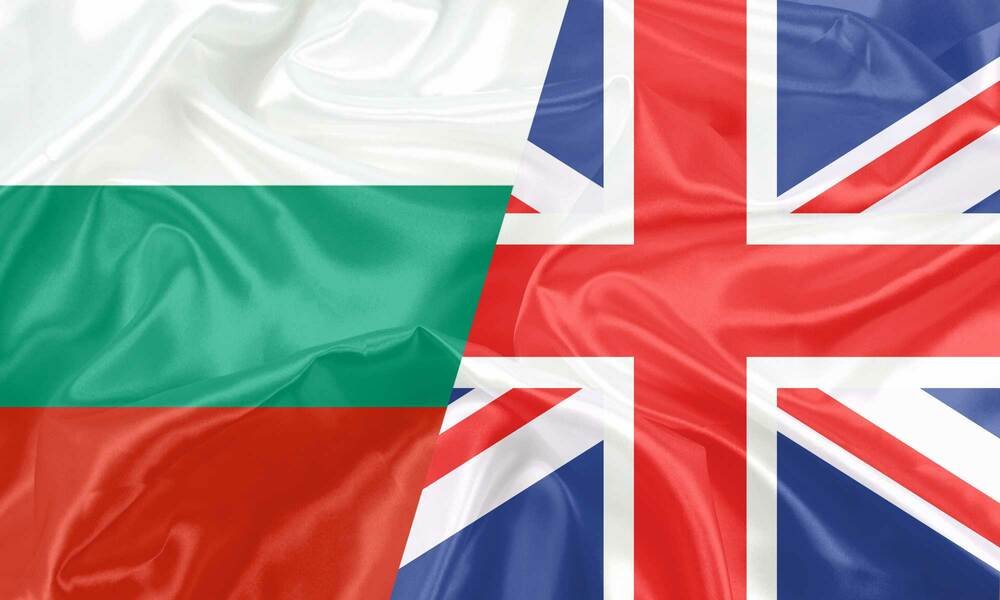News
Why It Makes Sense for UK Citizens to Open a Company in Bulgaria After the End of the Non-Dom Program

The United Kingdom has long been considered one of Europe’s most business-friendly environments. But with the recent abolition of the Non-Dom regime, many British entrepreneurs, freelancers, and investors are re-evaluating their financial future. The Non-Dom status had allowed UK residents who were domiciled abroad to limit their tax exposure on foreign income. Its cancellation means higher taxation, reduced flexibility, and more complex reporting for globally active professionals.
As a result, an increasing number of UK citizens are looking towards to open a Bulgarian company — an EU member state with low taxes, straightforward business regulations, and access to the European single market. Here’s why setting up a company in Bulgaria, rather than staying incorporated in the UK, makes solid economic sense in 2026 and beyond.
1. Bulgaria Offers One of Europe’s Lowest Corporate Tax Rates
Through recent statistic Bulgaria ranks #1 on the 5 best low tax countries in Europe.
Let’s start with the most obvious factor: taxation.
Bulgaria’s flat corporate tax rate is only 10%, the lowest in the entire European Union. The personal income tax is also a flat 10%, and dividend taxation stands at just 5%.
In contrast, the UK currently levies a corporation tax of 25% (for profits above £250,000), with additional complexity in dividend distribution and capital gains. Combined with national insurance and higher income tax brackets, the UK’s total tax burden can easily exceed 40–45% for entrepreneurs.
For small and medium-sized businesses, the difference is significant. A Bulgarian company paying only 10% corporate tax can reinvest profits more efficiently, expand internationally, and maintain long-term competitiveness.
2. Simplified Taxation and Lower Administrative Costs
Besides the rates themselves, Bulgaria’s tax system is remarkably simple. The country uses a flat-rate model with minimal deductions and straightforward reporting requirements.
Unlike the UK’s complex web of allowances, reliefs, and multiple brackets, the Bulgarian system makes compliance affordable and predictable. Accounting, audit, and payroll services are also much cheaper—often 50–70% less expensive than in Britain.
This simplicity appeals not only to seasoned investors but also to digital entrepreneurs, consultants, and remote workers who value transparency and low bureaucracy.
3. Access to the EU Market and Free Trade
Although the UK remains a major global economy, Brexit has complicated trade with the European Union. British companies now face customs procedures, VAT registration challenges, and additional import/export costs when dealing with EU partners.
By establishing a Bulgarian company, a UK citizen gains direct access to the EU single market. Goods and services can move freely within the EU without tariffs or bureaucratic barriers.
A Bulgarian company is also eligible for an EU VAT number, making cross-border transactions smoother and maintaining credibility with European clients.
In practice, many British entrepreneurs now use a Bulgarian entity or even a Romanian Company as their European base, combining low taxation with the regulatory benefits of operating inside the EU.
4. Low Cost of Doing Business
Bulgaria is one of the most cost-efficient EU countries for both living and operating a company.
- Office rent and coworking spaces are a fraction of UK prices.
- Professional services—accounting, legal, IT—are inexpensive yet high in quality.
- Labor costs are among the lowest in Europe, making it ideal for companies seeking to build local teams or back-office operations.
For entrepreneurs who relocate, the cost of living in Sofia or Plovdiv is often 50–60% lower than in London or Manchester, without sacrificing lifestyle quality. This affordability translates directly into better profit margins and higher savings.
5. Residency and Relocation Benefits
The end of the Non-Dom regime doesn’t only affect taxation—it also changes how global professionals structure their lives.
Under Bulgaria’s Entrepreneur Visa or Business Residency Program, non-EU citizens (including UK nationals post-Brexit) can obtain long-term residence by setting up and actively managing a company in the country.
This residence status allows visa-free movement across the EU’s Schengen Zone (which Bulgaria is in the process of fully joining), access to European healthcare, and favorable tax residency terms if the individual spends significant time in the country.
For British citizens looking to relocate within the EU after Brexit, Bulgaria provides one of the most accessible and affordable pathways.
6. Economic Stability and EU Protection
Bulgaria has maintained strong fiscal discipline, low public debt (around 22% of GDP), and steady economic growth even during global crises. As part of the EU, it benefits from European legal standards, investor protection, and access to funding programs.
This combination of low tax burden + EU legal certainty is rare. Many low-tax jurisdictions are offshore or semi-offshore territories that face transparency and banking issues. Bulgaria, by contrast, offers both credibility and cost-efficiency within the EU’s regulatory framework.
7. Why Staying in the UK May Cost More Than Leaving
With the Non-Dom regime gone, UK residents with global income will face:
- Full UK tax liability on worldwide earnings.
- Limited deductions for foreign investments.
- More complex reporting to HMRC and potentially higher compliance costs.
Meanwhile, establishing a Bulgarian company allows you to legally operate within the EU, optimize taxes, and maintain flexibility—without hiding income or resorting to aggressive schemes.
For many globally minded entrepreneurs, Bulgaria now represents what the UK once did: a simple, transparent, and business-friendly environment for growth.
Conclusion – Bulgaria: The New Smart Base for UK Entrepreneurs
The cancellation of the Non-Dom program marks the end of an era for tax-efficient living in the UK. Yet it also opens the door to smarter, EU-compliant alternatives.
With 10% corporate tax, low living costs, EU access, and a straightforward legal framework, Bulgaria stands out as one of Europe’s most attractive jurisdictions for business relocation.
For UK citizens seeking financial efficiency and global reach after Brexit, starting a company in Bulgaria isn’t just a tax move—it’s a strategic decision for long-term stability, mobility, and growth.
More Details : Buying a Lie Detector – What to Know Before You Pull the Trigger
-

 Entertainment3 weeks ago
Entertainment3 weeks agoBison Kaalamaadan Review: When a Sports Film Becomes a Portrait of Caste, Rage, and Survival
-

 Fashion1 month ago
Fashion1 month agoForbidden Pants: How Clothing Restrictions Shape Culture, Identity, and Society
-

 Lifestyle4 weeks ago
Lifestyle4 weeks agoQuiet Luxury: How Thoughtful Storage Elements Elevate the Status of a Wardrobe
-

 Celebrity1 month ago
Celebrity1 month agoStorm Reid’s Parents: All About Robyn Reid and Rodney Reid







